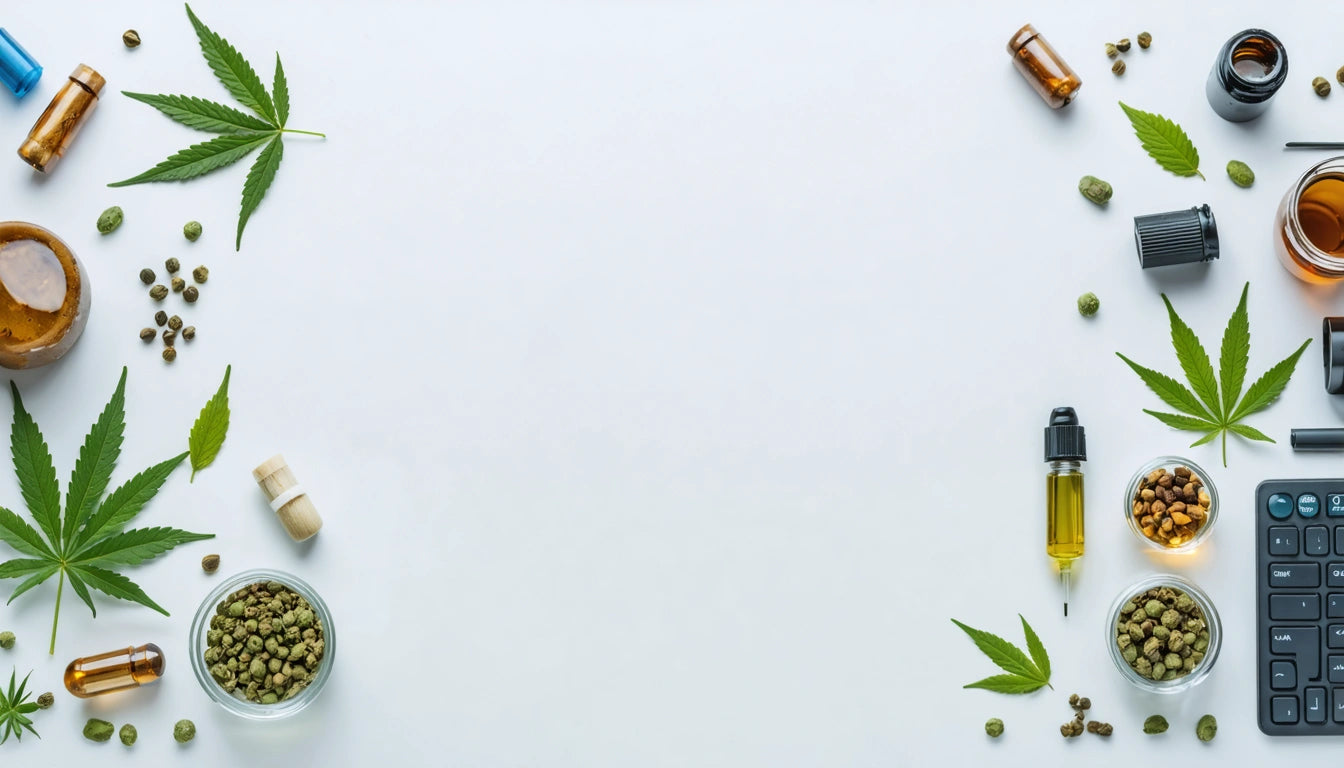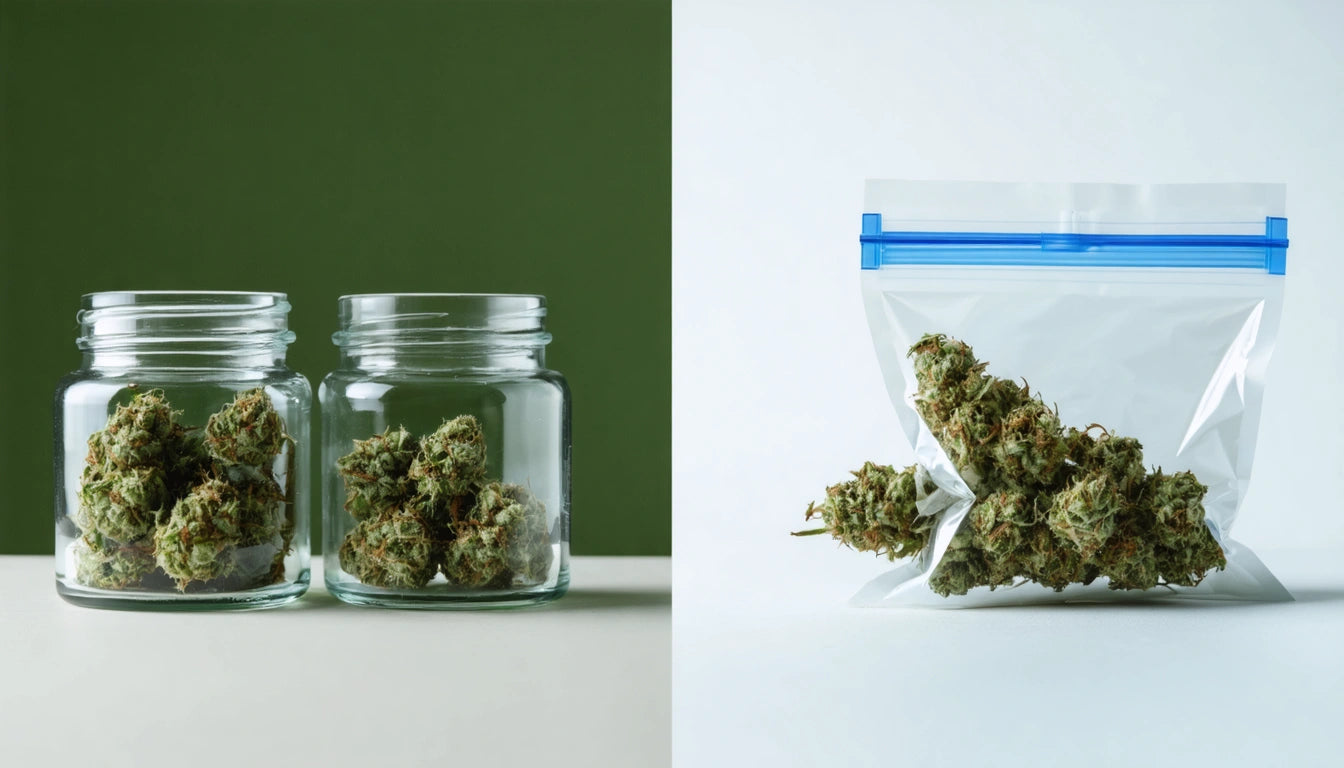Table of Contents
How Long Does Marijuana Stay in Your System?
Understanding how long marijuana remains detectable in your system is crucial for many cannabis consumers, particularly those subject to drug testing for employment or legal purposes. The answer isn't straightforward, as detection times vary significantly based on multiple factors including testing method, frequency of use, and individual metabolism.
Detection Windows for Different Testing Methods
Different testing methods have varying detection windows for THC and its metabolites:
- Urine tests: The most common testing method can detect marijuana for 3-30 days after use, depending on usage frequency.
- Blood tests: Generally detect THC for 1-2 days in occasional users and up to 7 days in frequent users.
- Saliva tests: Can detect THC for 24-72 hours after consumption.
- Hair tests: Have the longest detection window, potentially showing marijuana use for up to 90 days.
According to research on detection windows, occasional users may test clean on a urine test within 3-4 days, while heavy users might test positive for 30+ days after their last use.
Factors Affecting How Long Marijuana Stays in Your System
THC Concentration
Products with higher THC concentrations generally stay in your system longer. When consumers choose products like pre-rolled custom cones with premium flower, they're often consuming higher THC levels compared to traditional methods, potentially extending detection times.
Individual Metabolism
Metabolic rate significantly impacts how quickly your body processes and eliminates THC. People with faster metabolisms typically clear marijuana from their systems more quickly than those with slower metabolic rates.
Body Fat Percentage
THC is fat-soluble, meaning it binds to fat molecules in the body. Individuals with higher body fat percentages may retain THC metabolites longer than those with less body fat.
How Usage Patterns Impact Detection Times
The frequency and duration of marijuana use dramatically affect detection windows:
- First-time or occasional users: 3-4 days in urine
- Moderate users (several times per week): 5-7 days in urine
- Daily users: 10-15 days in urine
- Heavy, chronic users: 30+ days in urine
As detailed in this comprehensive guide, the cumulative effect of regular use means THC metabolites build up faster than they can be eliminated, extending the detection window significantly.
Metabolism and Body Composition Considerations
Your body's unique characteristics play a crucial role in how long marijuana remains detectable:
Age Factors
Metabolism typically slows with age, which may extend the time THC remains in your system. Older individuals might take longer to clear marijuana metabolites compared to younger people with similar usage patterns.
Hydration and Exercise
While proper hydration supports overall metabolic function, the myth that you can simply "flush out" THC by drinking excessive water has been largely debunked. Similarly, exercise has complex effects: while it may help long-term by increasing metabolism, short-term exercise before a test might actually increase THC levels in the bloodstream by releasing stored cannabinoids from fat cells.
Methods for Clearing Marijuana from Your System
If you're concerned about how long marijuana will stay in your system, consider these evidence-based approaches:
Natural Detoxification
The most reliable method is simply allowing your body time to naturally eliminate THC metabolites. Research indicates that abstaining from cannabis use is the only guaranteed way to clear your system.
Dietary Considerations
While no food will rapidly clear THC from your system, a diet high in fiber may help by promoting bowel movements that eliminate some THC metabolites excreted through bile. Antioxidant-rich foods may support your liver's natural detoxification processes.
Hydration and Exercise Balance
Maintaining proper hydration and regular exercise supports overall health and optimal metabolic function, potentially helping your body process THC more efficiently over time.
Testing Implications and Practical Considerations
Understanding testing protocols can help you make informed decisions:
Testing Thresholds
Most standard drug tests have specific cutoff thresholds. For marijuana, urine tests typically have a cutoff of 50 ng/mL for initial screening and 15 ng/mL for confirmatory tests. Being aware of these thresholds helps understand test results in context.
False Positives
While uncommon, certain medications and foods (like hemp seeds) can potentially trigger false positives on marijuana tests. If you're concerned about this possibility, inform testing administrators about any medications or supplements you're taking.
For those subject to regular testing, understanding how long marijuana stays in your urine specifically is crucial, as urine testing remains the most common screening method in employment settings.
Remember that individual experiences vary significantly, and the timeframes provided are general guidelines rather than guarantees. The only certain way to pass a drug test is to abstain from marijuana use for a sufficient period based on your unique circumstances and the specific testing method used.











Leave a comment
All comments are moderated before being published.
This site is protected by hCaptcha and the hCaptcha Privacy Policy and Terms of Service apply.